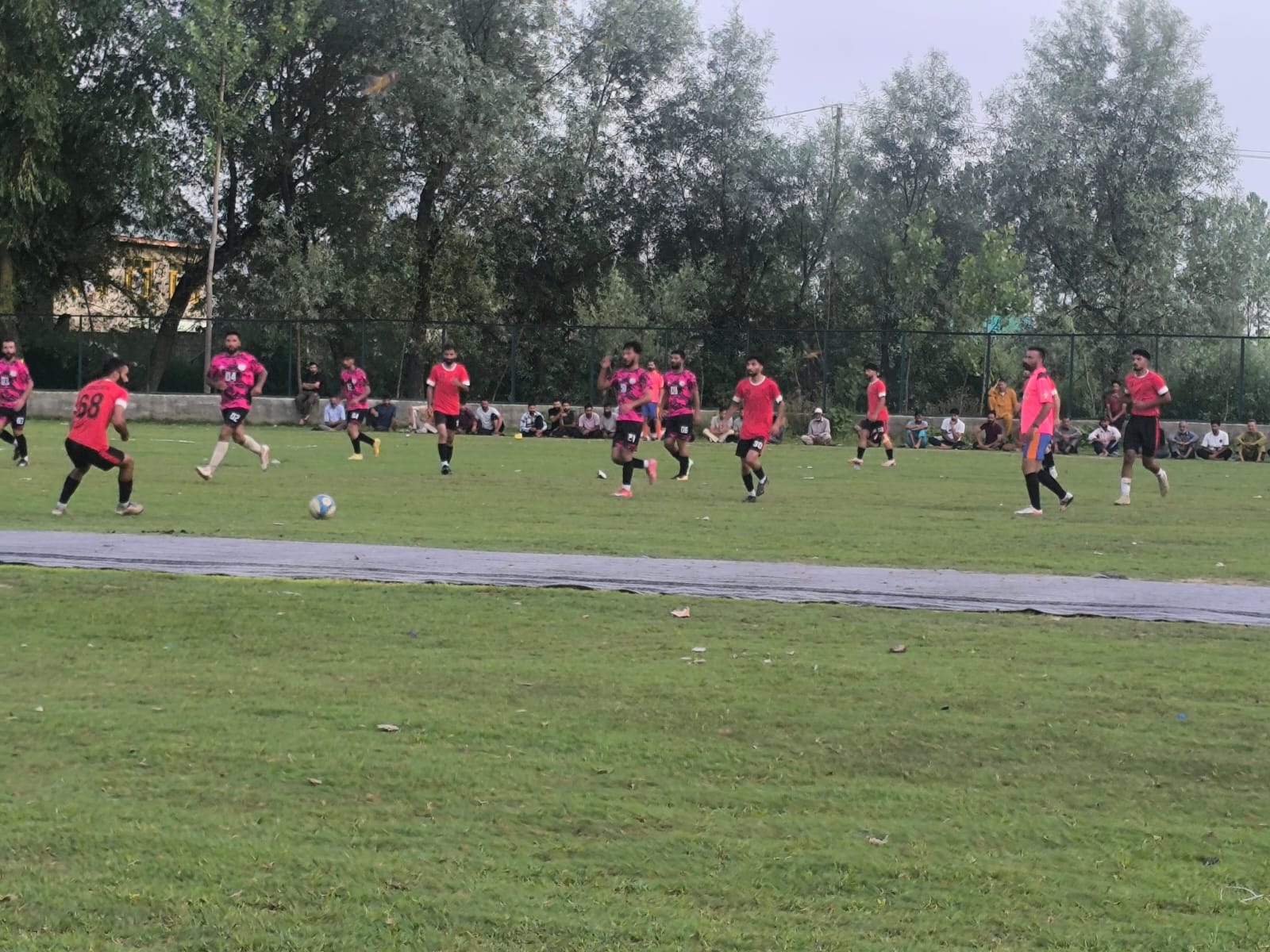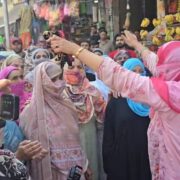Undoing The Historic Wrong, Kashmir Is Putting Victims at the Heart of Peace and Policy

After more than three decades of insurgency, loss, and political silence in Jammu and Kashmir, the J&K Government has finally begun to correct a grave historic wrong. Under the leadership of Lieutenant Governor Manoj Sinha, the Union Territory administration has, since 2022, launched a set of targeted initiatives aimed at recognizing and rehabilitating victims of terrorism — those civilians who bore the brunt of violence but were long ignored by both policy and public discourse.
Finally, A Victim Database and Efforts To Deliver Justice
The key to this change is a groundbreaking initiative of LG Manoj Sinha to create a detailed database of civilian victims — those killed, injured, displaced, or traumatized by terror attacks or military conflicts. For the first time, victims are being acknowledged. The goal is not to glorify suffering but to end decades of silence by providing job quotas, scholarships, financial support, and counseling.
According to Ministry of Home Affairs data, over 14,000 civilians have been killed in terror-related violence in J&K since 1990. Yet for years, there was no structured compensation policy, no psychological support, no attempt to formally acknowledge their trauma. That began to change with the implementation of new victim-centered rehabilitation programs introduced between 2022 and 2024. These include reserved government job quotas for terror-affected families, scholarships for children orphaned by terror, financial assistance to the next of kin, and dedicated psychological counseling services.
Additionally, a comprehensive civilian victim database — the first of its kind — was initiated in collaboration with civil society organizations such as Save Youth Save Future, ensuring that state policies are informed by real data rather than political assumptions.
Rehabilitation or Reward? The Misplaced Morality of Past Regimes
This has marked a fundamental shift from previous regimes of J&K that prioritized the reintegration of former militants, often overlooking the sil ent suffering of their voiceless, innocent victims. For the first time, the state is attempting to build a framework of justice that acknowledges resilience over violence and seeks to restore dignity to those long denied it.
For over three painful decades, Jammu and Kashmir faced violence, ideology, and political neglect. Militancy, counterinsurgency operations, foreign influence, and local political errors left many lives shattered. While global discussions often focused on the strategic aspects of the conflict, the most tragic victims were largely ignored — these were ordinary civilians.
Teachers, students, farmers, shopkeepers, homemakers — individuals who neither took up arms nor spread hatred but simply lived their lives — paid the highest price. Caught in the crossfire between militant violence and state response, these victims became politically abandoned. Their suffering was often overlooked and frequently misused to fit changing political agendas. Different regimes — both local and central — failed to create a clear policy for victim justice, let alone enforce one with integrity.
The approach to rehabilitation in Kashmir became more about selective appeasement than genuine healing. Successive governments created a misguided logic — that reintegrating militants was more important than addressing the suffering of their victims
While bright and meritorious youths faced the grind of corruption and nepotism, state policies seemed to be incentivizing youths who chose to become terrorists. Individuals who took up arms and later surrendered received state-funded jobs, housing support and public reintegration programs.
In stark contrast, a widow whose husband died in a market bombing, or a teenager disabled in an IED blast, found herself lost in a bureaucratic maze devoid of compassion. The message was chilling: in the twisted logic of conflict, violence was rewarded, and silent suffering was ignored. Justice, a fundamental element of any democracy, was sacrificed for political gain. Government resources and public support were often diverted to help those who had once fought against the fabric of society and the state.
Favouring Militants Over Victims Was the Misplaced Priority of Past Regimes
Civilian victims received no compensation, recognition, and most hurtfully — no voice. Their stories were boiled down to statistics or mentioned only during peace rallies. Generations of survivors grew up feeling alienated from the notion of justice that the state claimed to support.
The approach to rehabilitation in Kashmir became more about selective appeasement than genuine healing. Successive governments created a misguided logic — that reintegrating militants was more important than addressing the suffering of their victims. This blurred the moral line between perpetrators and the innocent. Militants who “renounced violence” were celebrated and often showcased as symbols of peace-building.
However, peace that honours former killers while ignoring their victims is inherently flawed. The system provided benefits to those who previously targeted civilians. The benefits included government jobs, financial aid, and social integration. Sadly, the system neglected those who suffered to seek peace.
This troubling priority sent a dangerous message: the state valued those who once challenged it more than those who quietly endured. Teachers killed for going to school during lockdowns, bus drivers ambushed, and farmers abducted were soon forgotten. Their children were left to struggle — searching for scholarships, facing stigma, and carrying a legacy of neglect. The idealism of “reform” often overshadowed the need for justice. By investing in former militants without helping their victims, the state turned conflict into a commodity. It fostered betrayal by denying assistance to the loyal and instead rehabilitating those who had once terrorized their communities. The emotional fallout was severe, leading to deep-rooted alienation — not based on separatist ideas, but on justified despair.
New Narrative of Accountability, Challenges Ahead
Recently, a noticeable change has begun. Under Lieutenant Governor Manoj Sinha, the state has started to redefine its understanding of justice in conflict — viewing it not as a concession to chaos, but as a moral duty to its citizens. This is not just a shift in policy; it aims to realign the ethical direction of governance in Kashmir.
In this effort, the civil society organization Save Youth Save Future, an NGO, has been essential. The group worked closely with local authorities to gather data, identify real victims, and contribute ideas for long-term rehabilitation plans. Their grassroots involvement and understanding of affected families have been crucial in a region where state records are often incomplete or politically manipulated.
By connecting governance with on-the-ground realities, the NGO has helped make justice efforts more focused, transparent, and rooted in lived experiences. This initiative turns the previous logic on its head. It shows that peace cannot be maintained by appeasing violence but by respecting resilience.
Survivors, not perpetrators, are the true sources of stability. By formalizing support for those genuinely affected, the current administration aims to create a more truthful framework for reconciliation — one that acknowledges pain, confronts injustice, and, most importantly, restores dignity.
The path forward is challenging. Identifying real victims in a place where politics often distorts truths is complicated. Records are scattered, documentation is lacking, and years of distrust linger. Without a transparent, unbiased system, this initiative risks becoming another empty gesture. Moreover, psychological trauma — the most hidden wound — needs as much attention as financial support. Children who witnessed their parents die or vanish must not only be rehabilitated but also treated with humanity.
Victim-Centred Policies Must Be Embedded in Institutional Memory
Addressing historic wrongs is not about changing the past; it’s about facing it with humility and honesty. While the scars of Kashmir’s violent past remain, recognizing victimhood — for what it truly is — signifies a significant change in the conversation. For the first time, the state appears ready to move beyond appearance-driven politics toward ethical governance.
The move is as much strategic as it is socio-politically significant. The real impact on victims cannot be overlooked. If a mother finally receives compensation for her son lost to violence, or a daughter gets the education she was once denied, the significance is paramount.
The true measure will be in consistency. Justice should not be sporadic; it must be a continuous principle of governance. Policy must become a part of institutional memory, protected from the fluctuations of changing administrations or political ideologies. A victim-centered framework must be embedded in law, not merely in political promises.
Additionally, this redemptive project must extend beyond individuals. It should reach entire communities, providing not just compensation, but reintegration — socially, economically, and psychologically. The journey will be slow and perhaps painful. Justice, especially when delayed, is not about quick results. It’s about reaffirming a social contract — one where the state acts as a guardian. Kashmir has waited far too long for true justice — for a government that doesn’t view civilian suffering through a political lens but through a moral one. What is happening now is undeniably historic. A state that once ignored victims is starting to listen. It is no longer sufficient to maintain peace; it must also strive for justice. Because in Kashmir, peace with justice shall be the real promise.
Dr. Ahmad Touseef previously served as an Associate Research Fellow at the International Centre for Peace Studies (ICPS), Delhi
Got a fresh perspective? C-KAR invites original articles and opinion pieces that haven’t been published elsewhere. Send your submissions to deputydirector@c-kar.com







